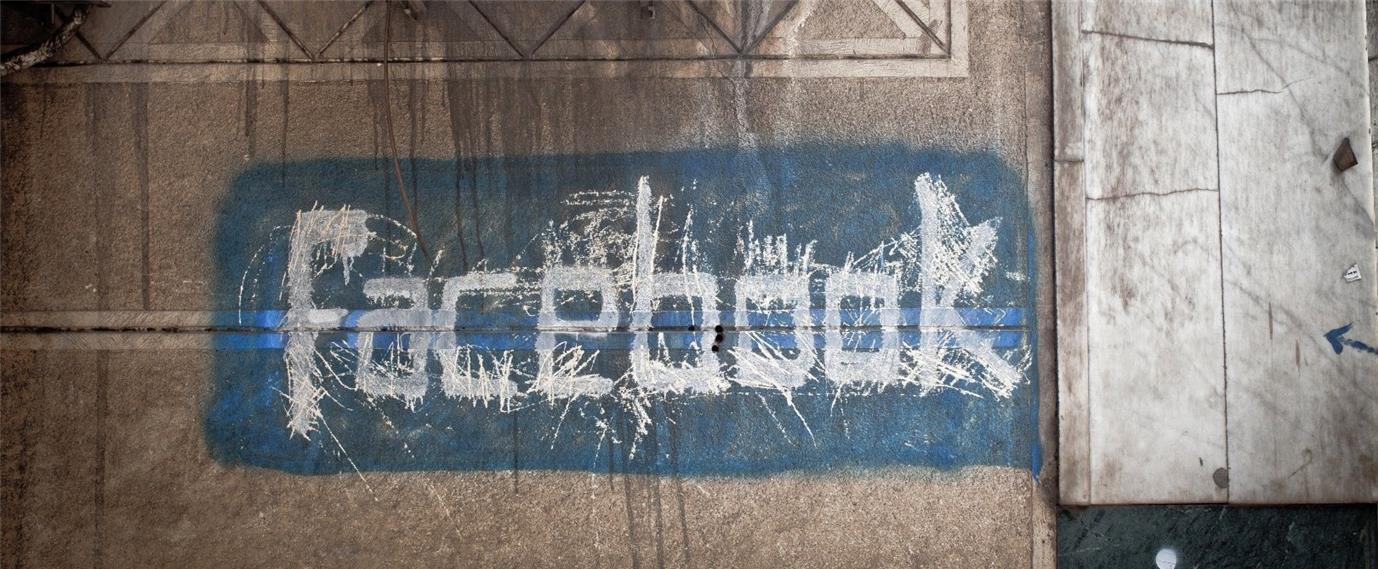يفتتن الباحثون بإطلاق المصطلحات ذات الأجراس والسجعات، ويتعجلون تفصيل المفردات على أحداث أكثر ما توصف به أنها فردية. ومن ضمن هذه الحالات برز إلى السطح مصطلح "صحافة المواطن" أو "الصحافة التشاركية" أو "الصحافة البديلة"، وصفا لما يؤديه المواطنون من مشاركة في نقل ما يدور حولهم من أحداث ومناسبات، متناسين الأركان التي تتكون منها الصحافة ووظائفها التي تستهدف بها المجتمع، إذ تعتبر التشاركية نتاجا لعدد من التزامنات في توزيع وإدارة الحوار في شبكات الإنترنت. وهذا ما ذهب إليه كل من "بومان" و"ويليز"(1) في تعريفهما للتشاركية بمشاركة المواطنين، ولعب أدوار في جمع المعلومات وتحليلها وكتابة التقارير الصحفية.
ولو تريث الباحثون قليلا وأمعنوا النظر في الممارسة، لاكتشفوا الكثير من التوصيفات التي قد تكون أقرب من "صحافة المواطن" و"المواطن الصحفي"، فلا يعدّ المواطن صحفيّاً إذا تزوّد بوسائل الاتصال، التي هي -على الأغلب- هواتف ذكية تمكِّنه من نشر المعلومات أو نقل الأحداث التي جعلته الظروف شاهدا عليها. ولا يمكن أن تصبح مدونة المواطن الشخصية صحيفة إلكترونية إذا كان ما ينشره لا يتعدى معلومات يمثل فيها دور المصدر في العملية الاتصالية التقليدية. وغالبا ما تفتقر المعلومة التي ينشرها ذلك "الصحفي المواطن" إلى المحتوى الصحفي المكتمل الأركان، إذ تبقى معلوماته عاجزة عن توفير إجابات دقيقة عن تساؤلات الخبر الستة، أو الإلمام بأشكال الخبر المعروفة.
ثمة بعض الاجتهادات لرسم ملمح مميز لصحافة المواطن، وفقا لمحددات اشترطها باحثون، مثل "مارك ديوز" (2) الذي يرى ضرورة أن يعي "الصحفي المواطن" شكل التغيرات التي طرأت على البنية الإعلامية، حتى يستوعب الطرق الجديدة في كيفية إنتاج المحتوى الإعلامي وتسويقه. كما على "الصحفي المواطن" أن يكون ملمّاً بما يستجد في الشكل والمفهوم لكل وسيلة صحفية، فلكل وسيلة طريقة تختلف عن الأخرى في تشفير وفك الشفرات، وفقا لمحددات بنيوية تشكل في منتهاها خاتمة الرسالة الإعلامية.
إن اعتماد المدوِّنين على ذات الأدوات التي يستخدمها الصحفي في ممارسة مهنته أو حرفته، واستغلال شبكة الإنترنت وسيلة للنشر والتداول، يثيران الرغبة في إعادة تعريف الممارسة والبعد بها عن الوصف الذي يضعها في خط موازٍ للصحافة التقليدية أو خانة صحافة الإنترنت. وتأكيد حضور المتلقي "المواطن" في القضايا العامة وإسهامه في نقل ما يشاهده من أحداث، قد يجعل التفكيرَ يتجه إلى تفكيك ما يشاركه من محتوى، خبرا كان أو شكلا آخر من أشكال التحرير الصحفي، إضافة إلى المهارات التي يمتلكها الصحفي في الصحافة التقليدية، والتي تمكنه من الاستقصاء والتحليل ورؤية ما وراء الخبر.
بالتأكيد لا يستطيع المواطن العادي سبر هذه الأغوار، إذ ينقل الحدث كما رآه فقط، وهو الدور الذي يلعبه المصدر في تزويد المحرر الصحفي بالمعلومات مجردة، ويجتهد المحرر في معالجتها وفق القوالب التحريرية، وربما يضطر للاتصال بمصادر معلوماتية أخرى، أو استدعاء التاريخ لإكمال الخبر.
اعتقاد راسخ بأن الحيوات التي تمارس على شبكة الإنترنت؛ ما هي إلا تمثيل افتراضي للواقع الذي تعيشه المجتمعات المختلفة، كذلك الحال بالنسبة للصحافة التي انتقلت في بداياتها إلى الإنترنت بتوفير نسخ من المطبوع الورقي على هيئة "بي.دي.أف"، قبل أن تنتقل إلى ما هي عليه الآن كمؤسسات قائمة بذاتها، وإن أتاح بعضها (الصحف الإلكترونية) من الفرص ما يمكِّن المواطن من جمع المعلومات وإدراجها في حيّزٍ تُخَصِّصه المؤسسات الصحفية لقرائها كنوع من التفاعل. ولكن هذا الإجراء تليه عملية تحريرية يقوم بها محترفون لإعادة تصنيف المعلومات التي يوفرها المواطنون، والعمل على تحريرها وتلوينها بما لا يخرج عن سياسة الصحيفة التحريرية، وهذا يبعد صفة الصحفي عن المواطن العادي.
يقفز إلى السطح الممارسات الإخبارية التي تمارسها النساء في الأحياء السكنية أو التجمعات الشبابية، إذ تصبح الطرقاتُ أنديةً للتجمعات في ظل البطالة التي تعاني منها كلّ فئة. وتنشط تلك الفئات في جمع أخبار المجتمعات، فالنساء في مجتمعاتنا العربية تحديدا، يتناقلن الأخبار من فوق الأسوار مع الجارات، وقد يشتركن في اختلاق أخبار أو تحوير الصحيح منها في غياب حراس البوابات الذين ينقحون ويصححون الأخبار، فتنتشر الشائعات. وبذات الحجم يتداول الشباب الأخبار والمعلومات بصورة تثير الكثير من القضايا المجتمعية، ولكن بمنظار يتفق والفراغ الذي يعيشونه.
وبظهور مواقع التواصل الاجتماعي كالمدونات وشبكات التواصل المعروفة، وما صحب ذلك من تطور في بنية الهواتف الذكية التي دمجت كل أدوات الإنتاج الصحفي في جهاز بحجم كف اليد، انتقلت المجتمعات إلى هذه الأجهزة، وازداد المنتوج المعلوماتي، وبذات القدر ازدادت رقعة الانتشار، وطغى الواقع الافتراضي الجديد لتصبح ثقافة التدوين والتراسل سائدة حتى في إطار المجتمع الضيق. وعلى الرغم من ضخامة المعلومات التي يضخها المجتمع الافتراضي الجديد، فإن الأمر لا يرتقي به إلى صفة الصحفي، وذلك لاعتبارات كثيرة لو نظرت إليها الباحثة في الظواهر الإعلامية "كليمينسيا رودريغز" (3) لما تعجَّلت إطلاق مصطلح "صحافة المواطن"، فالأمر يستدعي دراسات عميقة في فلسفة الإعلام والممارسات المهنية، ودراسة أخلاقيات الصحافة التي تفرض على الصحفي من القيود ما يجعله محايدا في طَرق وتناول الموضوعات.
إن أقرب توصيف لما تعارف الناس على تسميته بصحافة المواطن، أنه حالة تغيير هرموني أحدثه التطور التقني في بنية الإعلام التقليدي، نتج عنه ما يمكن توصيفه بـ"الإعلام الهجين وتغيير في الجينات المعرّفة للإعلام".
لقد تغيرت المفاهيم المتصلة بالإعلام، ونتج عن هذا التغيير مفاهيم جديدة كالتشاركية في إنتاج المحتوى، وظهر نوع جديد من مصادر المعلومات تتطلَّب توظيف وسائل التوثيق لتحقيق قدر من المصداقية في نقل المعلومات وتغطيات الأحداث التي تجعل من "صحافة المواطن" المصدر الأول للخبر. وهذا النوع الجديد أدى إلى تغيير واضح في نموذج الاتصال الإعلامي الذي تبدلت ملامحه، فاندمج المصدر والمرسل والمتلقي، وذابت الرسالة في الوسيلة، وما عاد مفهوم "رجع الصدى" كما كان في النموذج التقليدي للاتصال.
ويمكن الإشارة هنا إلى أن المدونات أو شبكات التواصل الأخرى مثل تويتر وإنستغرام أو سناب شات، والتي يستغلها الناشطون في نشر الأخبار العاجلة بصورة مستمرة، قد زادت من دور الشبكة العنكبوتية في الترويج لسياسة التعبير أكثر من أي وقت مضى. كما أضحت المدونات وشبكات التواصل الاجتماعي وسيلة للنشر والدعاية والترويج للمشروعات وتبني الحملات المختلفة، بل تعتبر المدونات وغيرها من الشبكات أهم الخدمات التي ظهرت على شبكة الإنترنت على الإطلاق، باعتبار أن المدونين ينقلون ما شاهدوه وسمعوه بأنفسهم.
تمظهرات المشهد والتناول الذي يتم تداوله عبر وسائل النشر الإلكتروني، تستبعد صفة "صحافة المواطن" أو "المواطن الصحفي" عن ذلك، فالصحافة حرفة أو مهنة لها سماتها الخاصة، ولها من القوالب والأشكال التي قلما نجدها تنطبق على ما نراه من ممارسات، حيث يفترض أن تقوم الصحافة بدور عقلاني في تشكيل الرأي العام وإدارة الحوار المتزن كسلطة لها وزنها في بنية المجتمع، وقوة رمزية في بناء التواصل ومشاركة الأفكار وتداولها.
الاتجاهات التي انتحاها الباحثون وأفضت بهم إلى نحت مصطلح "صحافة المواطن"، لا تقترب من الصحافة كمفهوم أو حرفة إلا في بعدها التنظيري. وأجدرُ بالباحثين والمنظرين النظر في التباين الثقافي والفكري، فضلا عن التنوع الإثني الذي تتكون منه المجتمعات وأشكال المحتوى الذي تتناقله هذه المواعين الافتراضية، فالأقرب أن هذه الممارسات هي انتقال للمجتمع من الواقع إلى واقع افتراضي، توسعت معه سبل المشاركة وتبادل الأفكار، وحينها قد تتعدد المسميات مثلما هو حاصل في الإعلام التقليدي كإطلاق الصفة للتخصصية أو لون الناقل أو نوع التناول، بأن نقول صحافة صفراء أو فكاهية أو اقتصادية.. إلخ.
هوامش
(1) مؤلفا كتاب، We Media, How audiences are shaping the future of news and information, Commissioned by The Media Center at The American Press Institute. Published July 2003
(2) أستاذ الدراسات الإعلامية في جامعة أمستردام، وصاحب كتاب Media Life, Polity Press 2012
(3) باحثة ومنظرة في الظواهر الإعلامية، وصاحبة مصطلح "صحافة المواطن".




















![Palestinian journalists attempt to connect to the internet using their phones in Rafah on the southern Gaza Strip. [Said Khatib/AFP]](/sites/default/files/ajr/2025/34962UB-highres-1705225575%20Large.jpeg)




















